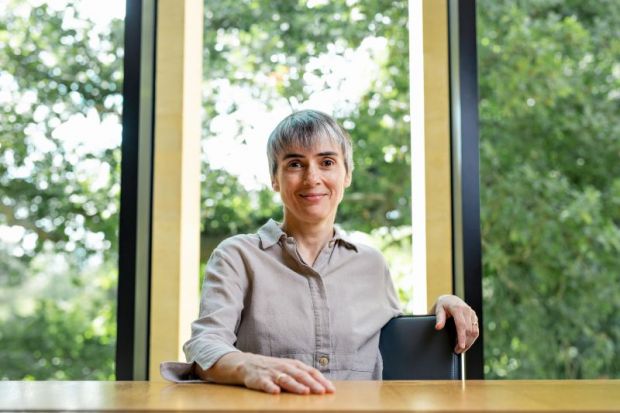Scientists must do more to debunk the “myth” that science and innovation “is run by and for the elite”, the new head of the UK’s main research funding body is due to say today.
In an address to a virtual conference to mark the 20th anniversary of the House of Lords’ Science and Society report, Dame Ottoline Leyser, chief executive of UK Research & Innovation (UKRI), will outline her desire to tackle “current perceptions of science” as a “domain of Einsteins” in which researchers are seen as “clever people solving problems for you, often alone”.
“The ‘clever scientist’ narrative feeds the myth that the knowledge economy is run by and for the elite,” Dame Ottoline will explain at the event, due to be hosted by UKRI and the Research on Research Institute, on 22 September.
“With our current perceptions of science as the domain of Einsteins, a knowledge economy sounds like one that is going to take jobs away from those left-out and left-behind communities and give them to the elite few,” she will add.
Instead, the scientific community must share its commitment to establishing an “inclusive knowledge economy” in which “everyone has the opportunity to participate, and from which everyone benefits”.
Dame Ottoline, who took over the UK’s £7 billion a year research funding body in July, will say that scientists have made “good progress” in their public engagement efforts since the publication of the “Science and Society” report in 2000, which marked the start of a “more open and transparent dialogue between scientists and the public”.
However, Dame Ottoline will add that there “remains a significant gap between those who feel able to make informed choices, to question, challenge and influence research and innovation, and those who feel disconnected, underrepresented and disenfranchised”.
“For this group, science is something that is done to you, not something in which you have a voice,” she is due to say, adding that, in the next 20 years, the “next step” would involve talking about “science in society” rather than “science and society”.
“Science needs to be a normal part of cultural life,” Dame Ottoline will add, saying it was unfortunate that science and research was sometimes seen as “an elite and alien world inhabited by boffins”.
Research and innovation are currently, “if they were a sport…polo”, Dame Ottoline is due to say. “We need to reclaim them as normal. Research and innovation have to be football – a national sport in which anyone can participate.”
Register to continue
Why register?
- Registration is free and only takes a moment
- Once registered, you can read 3 articles a month
- Sign up for our newsletter
Subscribe
Or subscribe for unlimited access to:
- Unlimited access to news, views, insights & reviews
- Digital editions
- Digital access to THE’s university and college rankings analysis
Already registered or a current subscriber? Login







